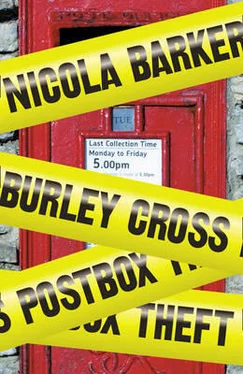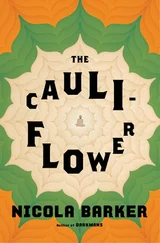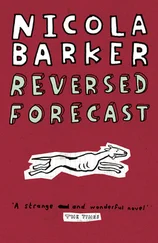Then he laughs. And I laugh.
‘We all nailed him up there,’ he says, ‘every one of us.’
His eyes are suddenly full of tears.
‘A touch of water?’ I ask.
‘What?’ He blinks.
‘The whisky? A touch of water?’ I repeat.
‘God bless you,’ he says, passing me his glass. Happy Christmas, Brother.
I miss you, my Blood.
May God keep you.
May God love you.
May God forgive you, and all of us.
Edo
121 Juniper Street
Pevensey Bay
Pevensey
East Sussex
28th January, 2007
Dear Sergeant Everill,
Further to our earlier telephone call (26/01/07), I have enclosed the commissioned copy, finally complete. I’m sorry that it took me longer than I had originally estimated to turn it around, and I hope you’ll forgive the delay. As I said on the phone, I like to think that I provide SOMETHING ABOVE AND BEYOND over and above what might generally be considered ‘a standard translation service’.
You are probably aware of the fact that I have translated some crucial items of evidence for the police on several previous occasions (I believe a translation of mine was critical in the arrest and deportation of a group of Congolese pygmies who were planning an environmental protest against the headquarters of a European multinational mining and logging company, in London, 1998. In 2004, my testimony was considered fundamental to the incarceration of a woman — a former sex-slave with the Hutu militia, no less — who was trying — and with some success! — to run an illegal cleaning company in Stoke).
Perhaps you may find it illuminating if I briefly let you in on a few ‘tricks of the translator’s trade’, so to speak (if you aren’t sold on the idea, then feel free to skip the next couple or so pages, recommencing the letter at ‘But enough of my grandstanding…’. I won’t mind in the least).
By and large, a good translator often finds that rather than translating a given manuscript ‘piecemeal’ — or word for word — it’s far more important to try and recreate the general ‘ambience’ of the piece, to let the piece — a letter, in this case — ‘chime within you, like a bell’.
A successful translation doesn’t so much depend on the factual details (i.e. the pitch of the bell, the size of its ringer etc.) as on ‘the rich beauty of the song itself’ (this ‘bell/song’ image is not my own — alas! — but borrowed from my esteemed varsity linguistics tutor, the legendary Dr Rendl Gull PhD, author of the Translator’s ‘Bible’: The Vagrant Affirmation: Yes! Mais Oui! Da!) .
Bearing the above in mind, the proficient translator generally seeks — so far as they are able — to mimic the rhythm of the language, its subtle innuendos, its gentle cadences. They hope to recreate a profound and abiding sense of ‘mood’, of ‘atmosphere’.
A translator’s most important duty is to hear the person’s ‘voice’, to absorb it and be true to it. We must be compassionate. We must be flexible. Above all, we must be empathetic.
It’s undoubtedly an art, Detective, since ‘communication’ — in its deepest and most abiding sense — is often embedded in the smallest details: those light brush strokes, those ‘minor notes’ (to extend Dr Gull’s bell/song simile). Translation is — to all intents and purposes — a kind of archaeology. Meaning is buried (preserved and entombed) in a person’s ‘little ticks’, their stylistic ‘nuances’, their quirky mannerisms and idiosyncrasies.
Indeed, one generally finds that a translator’s skill lies as much in making explicit what is not being said (and why) as what is being said (right there, on the page, in irreducible ink!).
An almost impossible task you may think, Detective (and you wouldn’t be far wrong), but I still find myself happy — excited, even — to engage with the challenge of it: to pull on my translator’s battle-suit and wrestle with the imponderables, to confront the vagaries of language, head-on, and to try (wherever necessary) to subdue them, to wrangle them — as best I can — into a new and more compliant form.
It can be an emotional journey — a dangerous journey, at times — full of treacherous by-roads and frustrating cul-de-sacs.
The implications, as I’m sure you can imagine, are often wide-ranging and profound.
The letter you kindly sent me (3/1/07) certainly proved no exception to this rule. I found myself perplexed and confounded — from the very start — by its ‘playful’ tone, its elusive character, its informality of style and heavy reliance upon ‘the vernacular’.
I have naturally endeavoured — so far as is possible — to keep some of these elements in place during my translation, while, at the same time, struggling to dredge a more ‘conventional’ narrative out of the mire.
As always, there’s that niggling disparity a translator always feels between the urge for something to ‘make sense’ (to the average reader), and one’s own deep and abiding drive towards professional veracity (the scrupulous need for accuracy, in other words).
It’s a delicate balance, Detective, and quite a hard one to sustain (I can’t begin to count the number of times I’ve fallen prey to the nagging anxiety that something might have been ‘missed along the way’ — or Lost in Translation, as I believe the saying goes).
It’s broadly for the above reasons that I have seen fit to ‘interrupt’ the letter’s narrative at certain points (something I am generally loath to do, although I have done it before) with some pithy interjections of my own to illuminate some of the more obscure and intangible elements in the writing (the emergence of an ‘unconscious backstory’, for example, and some other things which, to the untrained eye, might seem utterly unremarkable, but which, to the translator, with their greater expertise in language and its Byzantine psychology, offer invaluable ‘clues’ to the overall meaning/thrust of the piece).
Of course it goes without saying that I am well aware that my role as translator begins — and ends — with the meaning of the printed words on the page (and that’s exactly as it should be). It would be nothing short of a travesty, for example, if I allowed an over-weening inquisitiveness on my part to stand in the way of the voice of my subject (the integrity of ‘the voice’, as I’ve already stated, is always, always paramount).
But enough of my grandstanding! Let’s get down to ‘the brass tacks’ now, shall we? ‘Lokele’s letter’ (as I’m calling it, mentally, given that you have obscured his real name for reasons of confidentiality) is most certainly a linguistic hotchpotch, a puzzle, an intellectual minefield, written in what I like to call a kind of ‘corroded French of the old, Colonial style’. Just to make my job especially difficult, there’s the odd word of Lingala thrown in for good measure (Lingala became the national tongue of — as was then — Zaire — now the Democratic Republic of Congo — about thirty-odd years ago. It was introduced by President Mobutu, aka Joseph Désiré Mobutu, the Father of the Nation).
As you will read (in my occasional parentheses), I believe him to be an African man in his mid-fifties (I enclose these details in the unlikely circumstance that you have yet to identify/apprehend him). He was orphaned as a child and has a brother (to whom the letter is addressed). He is handsome (by his own admission!) and moderately well-educated (by African standards).
I’m sure it will come as no surprise to you that this complex translation — these few, humble pages which you now hold in your hand — is the result of many, many long days spent poring over mountainous piles of well-thumbed dictionaries, countless hours of intensive research on the internet, a smattering of emails to various obscure parts of the globe, and a desperate, last-minute trip to the Rare Books section of the British Library in London (the cost of travel, and the price of — as it turned out — two nights spent at a mid-range hotel, have naturally been included in my bill).
Читать дальше
Конец ознакомительного отрывка
Купить книгу












